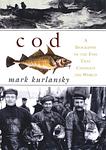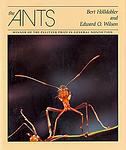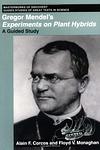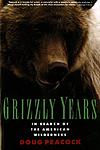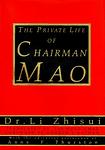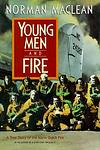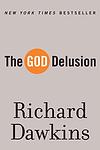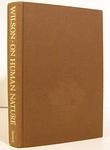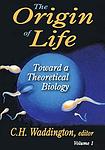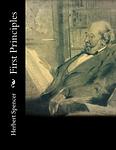The Greatest "Nonfiction, Life Sciences" Books of All Time
Click to learn how this list is calculated.
This list represents a comprehensive and trusted collection of the greatest books. Developed through a specialized algorithm, it brings together 305 'best of' book lists to form a definitive guide to the world's most acclaimed books. For those interested in how these books are chosen, additional details can be found on the rankings page.
Genres
The "Life Sciences" category in books encompasses a broad range of disciplines that study living organisms and life processes. This includes fields such as biology, botany, zoology, microbiology, genetics, biochemistry, and ecology, among others. Books in this category may delve into the intricate mechanisms of the cell, the complex interactions within ecosystems, the genetic blueprints that dictate the traits of organisms, or the evolutionary processes that have shaped life on Earth. They can range from introductory texts for students to advanced research publications for specialists. The Life Sciences category is essential for anyone seeking to understand the natural world, from the molecular level to the biosphere, and it serves as a vital resource for students, researchers, and professionals in health, agriculture, conservation, and biotechnology.
Countries
Date Range
Reading Statistics
Click the button below to see how many of these books you've read!
Download
If you're interested in downloading this list as a CSV file for use in a spreadsheet application, you can easily do so by clicking the button below. Please note that to ensure a manageable file size and faster download, the CSV will include details for only the first 500 books.
Download-
26. Cod: A Biography of the Fish that Changed the World by Mark Kurlansky
This book is a fascinating exploration of the historical, cultural, economic, and ecological impact of the codfish. It traces the role of this fish in shaping economies, sparking wars, and influencing culinary trends across centuries and continents. The book also delves into the devastating effects of overfishing and the current struggle to sustain cod populations. The narrative combines history, science, and gastronomy to present a comprehensive biography of this significant fish species.
The 2750th Greatest Book of All Time -
27. The Mind of the South by W. J. Cash
"The Mind of the South" is a comprehensive exploration of the culture, socioeconomic conditions, and mindset of the American South. The author delves into the historical development of the South, analyzing the impact of slavery, the Civil War, and the subsequent reconstruction on the region's collective psyche. The book provides a critical examination of the South's perceived uniqueness, its racial dynamics, and the enduring influence of its past on contemporary Southern identity.
The 3368th Greatest Book of All Time -
28. The Life of the Bee by Maurice Maeterlinck
"The Life of the Bee" is a philosophical and scientific examination of the behavior and nature of bees. The author delves into the intricate world of the hive, exploring the roles and duties of the worker bees, drones, and queen bee, and the complex societal structure within the hive. The book also discusses the fascinating process of honey production and the life cycle of bees. The author uses the bee society as a metaphor for human society, drawing parallels between the two.
The 3462nd Greatest Book of All Time -
29. A Short History Of Nearly Everything by Bill Bryson
This book is a comprehensive exploration of scientific knowledge, covering a wide range of topics from the Big Bang to the rise of civilization. The author aims to understand how we got from nothing at all to where we are now, exploring subjects such as geology, chemistry, paleontology, astronomy, and particle physics. The book also delves into the lives of the scientists behind the discoveries, making the complex concepts accessible to the average reader.
The 4064th Greatest Book of All Time -
30. The Ants by E. O. Wilson, Bert Hölldobler
"The Ants" is a comprehensive exploration of the biology, evolution, and behavior of ants. The book covers a wide range of topics, including the ants' origin and classification, their morphology and physiology, their communication and social organization, and their ecology. It also delves into the complex societies and intricate behaviors of these creatures, providing a detailed insight into their world. The authors use a combination of narrative and scientific explanations to make the subject accessible to both general readers and specialists.
The 4146th Greatest Book of All Time -
31. Function of the Orgasm by Wilhelm Reich
This book presents a groundbreaking exploration of human sexuality, arguing that sexual repression leads to various psychological disorders. The author, a psychoanalyst, introduces the concept of "orgastic potency", which is an individual's ability to fully surrender and discharge pent-up sexual energy during the sexual act. He contends that societal norms and moralistic attitudes towards sex often hinder this release, leading to various neuroses and other psychological issues.
The 4151st Greatest Book of All Time -
32. Theory of Games and Economic Behavior by John Von Neumann
This book is a groundbreaking work that applies mathematical methods to the study of economic behavior. It introduces the theory of games, a mathematical framework for analyzing conflict and cooperation between intelligent rational decision-makers, and its implications for economic behavior. The book covers topics such as zero-sum games, utility theory, and the minimax theorem, and it has had a profound impact on economics, political science, and other social sciences.
The 4151st Greatest Book of All Time -
33. A Critique of the Theory of Evolution by Thomas Hunt Morgan
The book is a scientific critique of the theory of evolution, presenting arguments and evidence against certain aspects of the theory. The author, a prominent biologist, explores the limitations and inconsistencies in the theory of evolution, challenging the widely accepted Darwinian principles. He presents alternative theories and hypotheses, backed by his own research and observations, to explain the process of species development and genetic inheritance, thereby attempting to provide a more comprehensive understanding of biological evolution.
The 4151st Greatest Book of All Time -
34. The Immense Journey by Loren Eiseley
"The Immense Journey" is a collection of essays that explore the wonders and mysteries of nature and human existence. The author, a renowned anthropologist, shares his insights and reflections on evolution, the cosmos, and the interconnectedness of all living things. Through vivid storytelling and poetic prose, he takes readers on a journey from the microscopic world of a single cell to the vast expanses of space, revealing the profound beauty and complexity of the natural world.
The 4151st Greatest Book of All Time -
35. The Diversity of Life by E. O. Wilson
This book is a comprehensive exploration of the variety and richness of life on Earth, written by a renowned biologist. It delves into the concept of biodiversity, examining its importance and the threats it faces. The author discusses the evolution and extinction of species, the complex interactions within ecosystems, and human impact on the environment. The book is a passionate plea for the conservation of the planet's diverse species and ecosystems.
The 4542nd Greatest Book of All Time -
36. The Rise And Fall Of The Third Chimpanzee by Jared Diamond
"The Rise and Fall of the Third Chimpanzee" explores the fascinating similarities and differences between humans and our closest living relatives, the chimpanzees. Jared Diamond delves into the evolutionary history of Homo sapiens, examining our complex behaviors, language, art, and technology. He also addresses the darker aspects of human nature, such as violence and environmental destruction, and raises thought-provoking questions about our future as a species. Through a captivating blend of science, anthropology, and history, Diamond offers a compelling exploration of what it means to be human and the challenges we face in our quest for survival.
The 4545th Greatest Book of All Time -
37. Darwin's Black Box by Michael J. Behe
This book presents a critique of the theory of evolution from a biochemical perspective. The author argues that complex biochemical systems within the cell, such as blood clotting and vision, could not have evolved gradually through natural selection because they are "irreducibly complex" - all parts must be present and functioning for the system to work. He proposes that such systems must have been deliberately designed, introducing the concept of "intelligent design" as an alternative to Darwinian evolution.
The 4734th Greatest Book of All Time -
38. Experiments on Plant Hybridization by Gregor Mendel
This seminal work in the field of genetics presents the results of a series of experiments conducted on pea plants, which led to the discovery of fundamental laws of inheritance. The author meticulously cross-bred different varieties of peas and meticulously recorded the traits of their offspring, leading to the formulation of the principles of segregation and independent assortment. These principles, which underpin modern genetics, explain how traits are passed from parents to offspring and how different traits are inherited independently of each other.
The 5277th Greatest Book of All Time -
39. Grizzly Years by Doug Peacock
"Grizzly Years" is a memoir of a Vietnam War veteran who finds solace in the wilderness of the American West, specifically in observing grizzly bears. The book chronicles his years of tracking these majestic creatures across the Rockies and Yellowstone, and his efforts to protect them from human threats. The narrative intertwines the author's personal journey of healing from war trauma with his passionate advocacy for grizzly bear conservation.
The 5465th Greatest Book of All Time -
40. The Private Life of Chairman Mao by Li Zhi-Sui
This book is a memoir written by a personal physician who served Chairman Mao for over two decades. It offers an unprecedented and intimate look into the life and character of the powerful Chinese leader. The book reveals Mao's personal habits, manipulative nature, political maneuvers, and his disregard for human life in the pursuit of his goals. It also uncovers the power struggles within the Chinese Communist Party, providing a unique perspective on China's political history.
The 5471st Greatest Book of All Time -
41. Young Men and Fire by Norman Maclean
The book tells the tragic story of 13 smokejumpers who lost their lives in the 1949 Mann Gulch fire in Montana. The author examines the circumstances leading up to the disaster, the fire's aftermath, and its lasting impact. The narrative combines elements of reportage, biography, and nature writing, and it serves as a meditation on writing, grief, and the human character.
The 5817th Greatest Book of All Time -
42. The God Delusion by Richard Dawkins
This book is a well-known critique of religion, arguing that belief in a supernatural creator significantly lacks empirical evidence. The author asserts that faith encourages wars and fosters fanaticism. He also challenges the idea that morality can only come from religion, suggesting instead that humans possess innate empathy and cooperation. The book also explores the roots of religion, explaining its evolution as a byproduct of our tendency to assign agency to inanimate objects and forces. Ultimately, the author encourages atheism and a sense of awe derived from science and the natural world.
The 5903rd Greatest Book of All Time -
43. Ever Since Darwin: Reflections in Natural History by Stephen Jay Gould
This book is a collection of essays that explore the theory of evolution and its implications in natural history. The author uses his expertise in paleontology and evolutionary biology to discuss various topics such as human evolution, the science of classifying organisms, and the role of cataclysmic events in the history of life. The essays also delve into the relationship between science and religion, the nature of scientific progress, and the misuse of biological theories in social ideologies. Throughout the book, the author emphasizes that evolution is not a linear process, but a complex interplay of chance, necessity, and history.
The 6375th Greatest Book of All Time -
44. On Human Nature by E. O. Wilson
This book delves into the biological origins of human behavior, suggesting that they are largely derived from our evolutionary past. The author explores how our species' inherent traits and instincts, including aggression, sexual conduct, and moral instincts, are influenced by our genetic makeup. He also discusses the implications of these ideas for issues like politics, sexuality, religion, and ethics, challenging the reader to reconsider the nature versus nurture debate.
The 6644th Greatest Book of All Time -
45. Wonderful Life: The Burgess Shale And The Nature Of History by Stephen Jay Gould
"Wonderful Life: The Burgess Shale And The Nature Of History" explores the fascinating Burgess Shale fossil site in Canada and its profound impact on our understanding of evolution. Stephen Jay Gould delves into the diverse and bizarre creatures that once inhabited this ancient ecosystem, highlighting their significance in challenging traditional views of the evolutionary process. Through vivid storytelling and scientific analysis, Gould presents a thought-provoking argument that the history of life is contingent and unpredictable, emphasizing the importance of contingency in shaping the course of evolution.
The 6844th Greatest Book of All Time -
46. The Dragons of Eden by Carl Sagan
This book explores the fascinating topic of the evolution of human intelligence, from the big bang to the present day. The author uses a blend of psychology, anthropology, and biology to propose theories on how the human brain has evolved over time. The book also delves into the role of reptilian and mammalian brains in human evolution, while drawing parallels between the development of the brain and the cosmos. The author's theories are supported by a wide range of scientific evidence, making this a compelling read for anyone interested in the evolution of intelligence.
The 6923rd Greatest Book of All Time -
47. The Blank Slate by Steven Pinker
"The Blank Slate" challenges the conventional belief that human behavior is largely shaped by the environment and experience, arguing instead that genetics play a significant role. The book delves into the controversies surrounding this concept, exploring the implications it has on politics, violence, child-rearing, and the arts. It also argues that acknowledging our innate traits can lead to a more humane society, as it would allow for a better understanding of our strengths, weaknesses, and individual differences.
The 7161st Greatest Book of All Time -
48. Through the Language Glass: Why the World Looks Different in Other Languages by Guy Deutscher
This book explores the link between language and perception, challenging the conventional belief that languages are only tools for describing reality and do not influence the way we perceive the world. The author delves into how different languages can shape the way their speakers understand and interact with their surroundings, arguing that linguistic differences can significantly impact cognition and perception. The book combines linguistic analysis, cultural history, and cognitive science to provide a fascinating examination of how our mother tongue can affect our cognitive processes, including color perception and spatial orientation.
The 7859th Greatest Book of All Time -
49. The Nature of Life by C. H. Waddington
"The Nature of Life" is a comprehensive exploration of the biological and philosophical aspects of life. The author delves into the complexity of life, discussing concepts such as evolution, genetics, development, and the environment. The book also explores the philosophical implications of these concepts, examining the relationship between science and philosophy and the nature of life itself. The author's extensive knowledge and innovative ideas provide a unique perspective on the subject, making it a thought-provoking read for anyone interested in biology and philosophy.
The 7960th Greatest Book of All Time -
50. First Principles by Herbert Spencer
"First Principles" is a philosophical work that delves into the fundamental principles of the universe and human nature. It explores the idea of evolution and the law of organic progress, arguing that all entities, whether biological, psychological, or sociological, evolve from simple and homogeneous to complex and heterogeneous. The book also discusses the concept of 'survival of the fittest,' positing that this principle governs all transformations. It is a profound exploration of the interconnectedness of the universe and the natural laws that govern it.
The 8235th Greatest Book of All Time
Reading Statistics
Click the button below to see how many of these books you've read!
Download
If you're interested in downloading this list as a CSV file for use in a spreadsheet application, you can easily do so by clicking the button below. Please note that to ensure a manageable file size and faster download, the CSV will include details for only the first 500 books.
Download